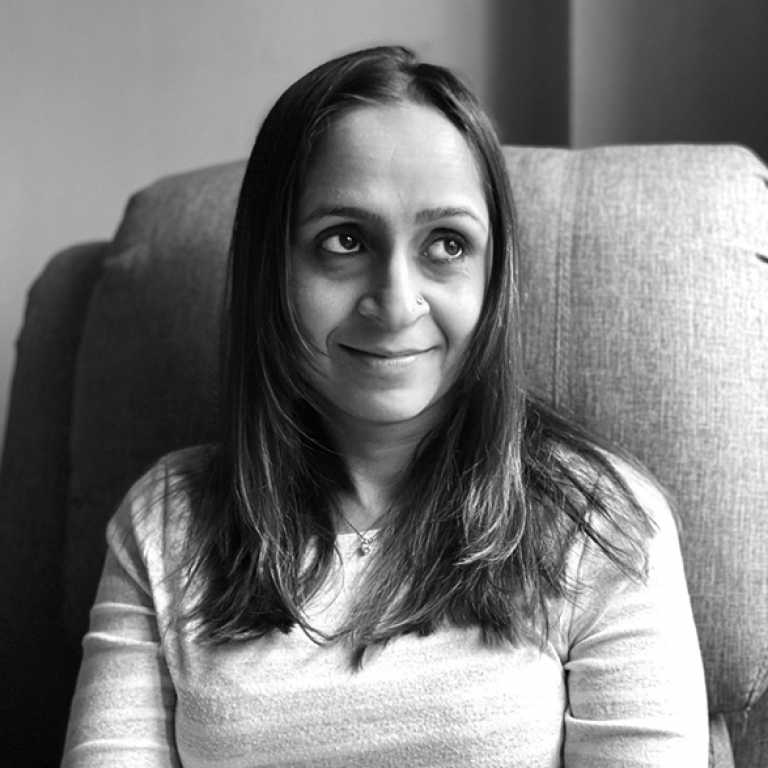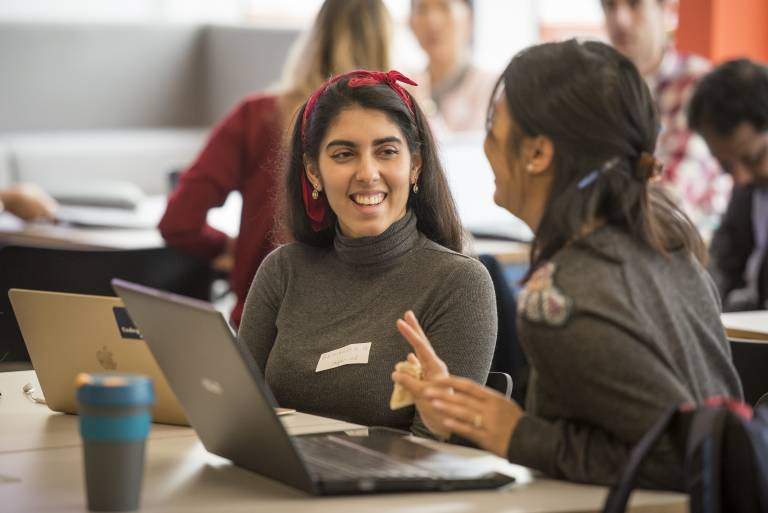Architect Tanya Khanna is the Founder of Epistle, a communications consultancy focused on bringing South Asian design to the global forefront.

Tanya Khanna is an architect (MArch Architectural Design, 2006) and the founder of Epistle, the first communications consultancy for architects and designers in South Asia. She's also a curator, writer and teacher, and is currently giving back to UCL as an alumni group volunteer in Delhi to inspire our international cohort to achieve their full potential.
What were the highlights of your time at The Bartlett?
The fact that you are literally in the city, and within a lively campus – was the most exciting bit. We were constantly visiting exhibitions, galleries and events. There was so much to do, and there was so much exposure to reading and theatre. And so many lectures from people who I'd previously only read about – they were literally speaking in front of me every Wednesday.
The experience of a ‘no boundaries learning’ resonated with me too. It contrasted well with the very structured undergraduate programme I'd taken before.
The first month was really experimental. It took me some time to adapt, but my tutor was wonderful. I remember at one point, I had a wobble and he gave me advice that I took to heart and continue to tell my team and people who are looking to do a masters. He said: "You're already a trained architect, you've done five years of education to prove this. You have come halfway across the world and so you've got to be here to do something new. If you're going to do the same thing again, then there's no point." That really changed my perspective.
What aspects of your time at UCL set you up for your future career?
UCL had these free, open courses during the week for anyone who wanted to pick an elective. These were optional courses that weren’t specifically from your field, but we could choose to take these alongside our main studies. I chose academic writing due to my interest in writing and journalism, and this was one of the best decisions I’ve made. While I come from an English-speaking background, learning how to structure academic writing properly was brilliant. And I've carried that through in my professional journey.
Interestingly, after my degree I was looking to work in London. I applied for a research-based job, and I got the opportunity because I had done that academic writing course. This kick-started my professional writing career in the UK – and went on to help me in my career trajectory and form my own company.
Are you still in touch with anyone from your course?
My cohort were all from diverse backgrounds and we formed these fantastic professional connections through supporting each other. There was so much camaraderie between everybody, and even though we’re now all over the world, we’re still in contact today.
During COVID times, a friend from The Bartlett and I hosted a small online lecture series and managed to pull in 16 Bartlett alumni to talk about their work. It was really popular and all proceeds went to two NGOs.
Describe your career journey since leaving UCL
After university, I worked at reputed architectural firms in the UK, plus I had short-term roles at places like Icon magazine and the London School of Economics. I was part practising architect and part marketing person. On returning to India, I continued to build on this until I was fully involved in communications for a studio.
In 2011, I took a break and started Epistle. This was a personal mission that I began thinking about when I was at The Bartlett. In London, I was exposed to how architects and stakeholders in the built environment were communicating with each other, and I saw it being done really well. Coming back to India, I could see there was a gap.
To begin with, it was content-based work, and it's grown from there. Today, we're a large team, the first consultancy of this kind in India – which we’re proud of – and we've set the precedent for other studios like ours to come up. At Epistle, we are focused on helping Indian design and architects get on the global map. When I was at The Bartlett, one Indian architect might occasionally get featured in global design and architectural magazines. Today, Indian practices are all over crafting their own identity and being positioned for the work that they do, and we are proud to say that we've played a critical role. It's very satisfying.
It also makes me recognise the immense responsibility we have too, which is why over the last two years I've gotten involved with the UCL alumni community. I feel like this all started with my journey at UCL, and this is one way of giving back.
What advice would you give international students coming to UCL?
It's about getting rid of preconceived notions of what student life is going to be, and instead of just focusing on the academic rigour of the course, think about your time as a holistic experience. Leverage what’s going on outside of your course and the opportunities that you have, and professional success is bound to follow.
UCL played a critical role in my personal and professional development because I was able to maximise my experience. I took up every professional, cultural and learning opportunity that came to me. That's the stuff that counts and makes your portfolio complete. Employers are looking for the extra edge, and you can get that at UCL.
The Bartlett is the UK’s largest multidisciplinary faculty of the built environment. Explore our full range of Postgraduate courses, the study and research resources, and technical facilities on offer, and the scholarships opportunities available to you.
 Close
Close


